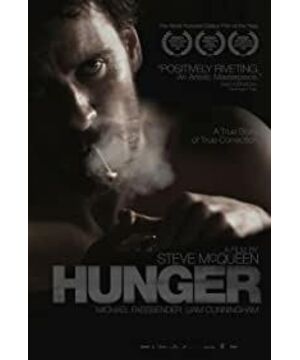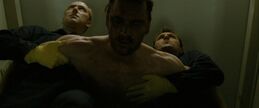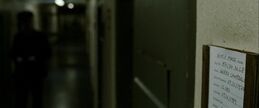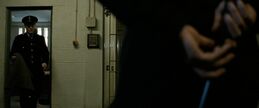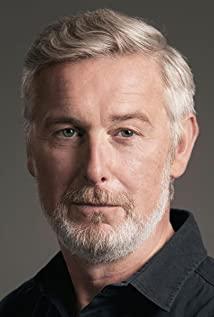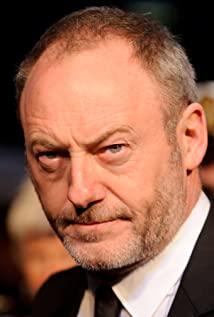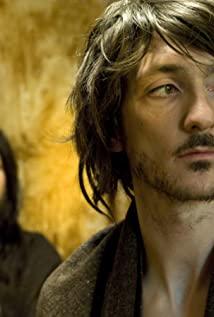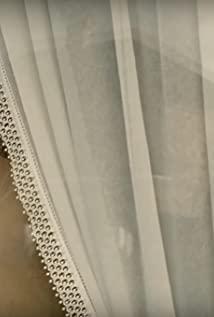Director Steve McQueen has brought a lot of surprises to the world film industry in recent years with his skillful narrative skills, superb long-shot techniques, and beautiful composition. The in-depth understanding of human rights, freedom and other issues shows McQueen's ability to control major historical films, and will definitely remain in the declining British films. 2008 Cannes Film Festival Golden Camera Award; 2008 British Independent Film Festival Best Actor, Best Director, Best Cinematography; 2008 European Film Awards "Annual Discovery" Award; 2009 BAFTA Nominated for Best Local Film , Best New Director. The long list of winners reflects the all-round affirmation of the film. The director's first feature film, a new form of interpretation of historical events, and unparalleled photography skills all determine that once this film is included in the review, it will be applauded.
The difficulty of shooting a film that reflects historical events is how to give the audience who do not know the whole story of the incident and how to bring a fresh viewing experience to the audience who understand the incident. Director McQueen undoubtedly handed in a satisfactory answer. The "Northern Ireland problem" has a long history, and its far-reaching effects are occasionally highlighted even in the British Isles today. The director focused on a small protest throughout the movement and gave most of the time to a Republican named Bobby. A small perspective does not mean a small point of view and a low level, but a large perspective will bring about problems such as unclear narrative and superficial analysis. The advantage of a small entry point is that the director can spend more time laying out the emotional atmosphere required by the film itself, and can use more space to deeply describe the inner state of the characters in the film. The characters other than Bobby in the film have very little playing time, but the fullness of the characters is not affected at all. More close-up shots and silent long shots play an important role.
First up is a poor prison guard who is not mentioned by name until his death in the film. At the beginning of the film, it was a presentation of the daily life of the prison guards, the fast passing time, the boring meals, the boring family, the perverted work, the crazy criminals, this is all the life that the prison guards have to face, and this is also for the later films. The narrative sets the tone of repression and indifference. The prison guard's second appearance was during a mistreatment of the protesters. The poor guard tried to pour out all his anger on Bobby, but slammed his fist on the wall. An unsuccessful outbreak of resentment in the heart will lead to a new round of venting, which in turn lays the groundwork for a new resentment. Repressive prisons are never-ending battlefields, and prison guards are destined to become victims of so-called just laws. The third appearance of the prison guard has also become the last time. During a dull visit to a nursing home, the prison guard was shot and killed by Republicans. The son's blood smeared all over the mother's body. negative impact.
Director McQueen pays attention to the behavior and psychological comparison of the positive and negative sides. The characters belonging to the government go out to the prison guards and there is also a riot police officer who is also anonymous. The Republicans, dissatisfied with the new clothes, launched a collective protest, and riot police were ordered to quell the arrogance of the criminals. The riot police showed unusual tension and anxiety. The baton in his hand meant more to himself as a tool to eliminate guilt, but it itself symbolized the evil of using violence to overcome violence. Violence against innocent people cannot escape the inner condemnation. The violent scene and the contrasting image of the riot policeman crying alone make the audience have to ponder the proposition about violence and anti-violence.
There is a character in the film whose identity is the most special. He does not belong to the Irish Republican Party, which is engaged in the protest movement, nor the federal government, which suppresses the resistance. He watches and evaluates every step of the two sides from an outsider's perspective. Father Dom appears only once in the film, appearing in the most important set of scenes in the second half of the film, one of which is a dialogue scene lasting 20 minutes. The priest plays a special role in the prison. He is a mentor for criminals to examine themselves and face reality. In this film, the conversation between Father Dom and Republican Bobby actually promoted the launch of the hunger strike and affected the protests. The final result of the government's response. The "Northern Ireland Problem" is essentially a huge religious conflict. The role of the priest in the prison is very subtle, and it also makes the audience reflect on the true role and universal value of religious belief. There is such a dialogue in the film. Bobby used Bible paper to make cigarettes in prison, and Father Dom asked, "Which Bible is better to smoke?" Bao Bao replied, "I only smoke Lamentations." "It seems to be the smoke of sorrow," replied the priest. The director did not give extensive lectures on the problem, but only exposed the cross-section of reality, leaving the initiative of thinking to every audience in front of the screen.
The excellent interpretation of the supporting characters adds a lot to the film, but the director's ingenious choreography is indispensable. Director McQueen made the world audience appreciate the new atmosphere of British filmmakers at the beginning of the new century, which is completely different from the extravagance and artificiality of the past. The appraisal of time will tell us that the films "Hunger" and "Trainspotting" together will become iconic cultural products of modern British culture.
View more about Hunger reviews


